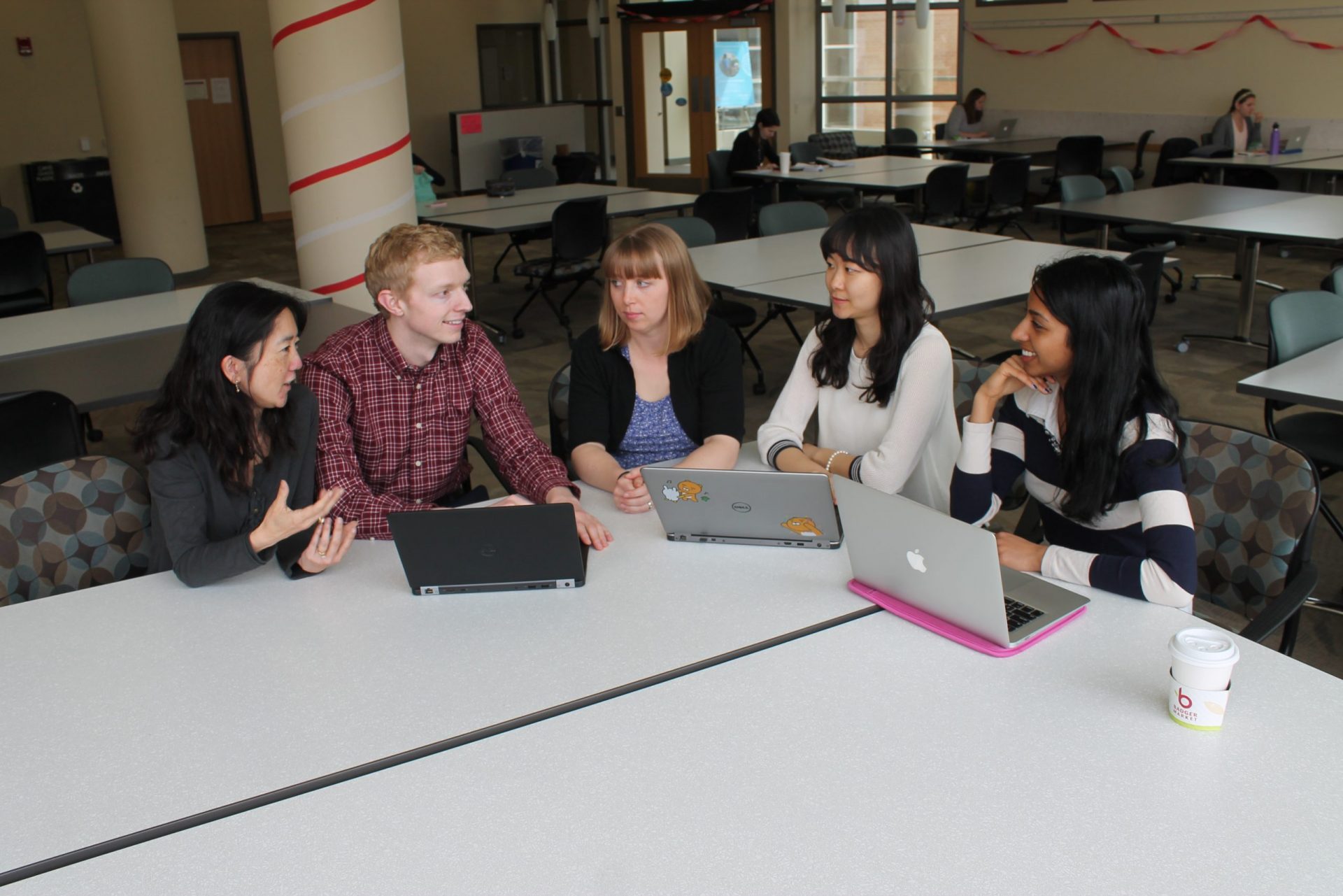I am always looking for new students who are interested in pursuing a career in Pharmacy. When I start mentoring my graduate students, I encourage them to think about research topics that are meaningful to them. Graduate students are responsible for identifying gaps in the literature and describing the rationale for their project. With continual encouragement, they refine their research question through a process of discussion, literature searching, and articulating their ideas in writing. In addition to opportunities to present their work in graduate seminars, I encourage my students to present their work at national meetings, where they will be challenged by researchers to think on their feet and engage in terrific dialogue.
“I hope my students will develop independent thinking and learning beyond the scope of the classroom.”
As a mentor, I am confident in my abilities to guide students through the challenges of graduate school. I have over 75 journal articles, conference papers and book chapters from my research, and I am a peer-reviewer for journals including the Journal of the American Medical Informatics Association, Joint Commission Journal of Quality and Safety, BMJ Quality and Safety, Journal of Patient Safety, Research in Social & AdministrativePharmacy, and Applied Ergonomics.

I spend significant time with each student to refine their presentation skills and role-play potential questions. Our work has resulted in dozens of presentations and posters at national conferences, peer-reviewed publications, and doctoral degrees and is continuously growing. Olufunmilola Abraham, my first graduate student, is now an Associate Professor in the Social and Administrative Sciences Division. She is the perfect example of an individual who has grown tremendously in independent thinking. Like Dr. Abraham, other students I have mentored have become professors, researchers, and pharmacists, and I am inspired by their hard work and dedication. Together, we have worked on numerous research projects in the field of medication safety, collaborating with countless prestigious universities and pharmacies to innovate the field.
“While I recognize the impact that I make in teaching students theoretical concepts, it is important to me that I make an impact on students’ ability to achieve other goals, like dedicating time to satisfying pursuits or having a family.”
I welcome the opportunity for building relationships, informal mentoring, and being a role model. Students need to know how to be successful in their future job as a pharmacist or researcher, but they also need to know how to manage their time, prioritize responsibilities, and make tough decisions when it comes to balancing their work and home life. As students start to think about transitioning to the next phase of their career, they seek guidance that goes beyond the didactic material to include life skills. So, it is important to me that I make myself available to both pharmacy and graduate students to encourage these types of conversations through potlucks at my house, informal chats in my office, and opportunities to speak at graduate seminars and student organization meetings. Because my mentoring philosophy is based on mutual collegial respect, I am not afraid to talk about mistakes I have made and what I would do differently if I had the chance. Other common topics include how I seek my own mentoring, how I worked my way through difficult and scary decisions, and how to identify and be at peace with my own measures of success (rather than someone else’s measure of success).